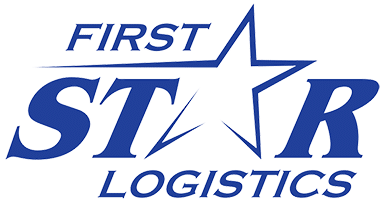No one moves freight for free. Every transaction comes with a bill, and in the freight logistics industry, a freight bill is the standard means of explaining the services and charges for shipping goods. In this guide, we answer the question, “What is a freight bill?” We detail the information freight bills contain, explain how a freight bill differs from a bill of lading, and discuss why freight billing is necessary.
What is a freight bill?
A freight bill is a financial document that explains the services and associated costs for a freight shipment. Carriers, or the brokers who hire them, create freight bills to document services and ask shippers for payment. Without freight bills, it would not be easy to understand and track the charges associated with each shipment.
What information does a freight bill contain?
A freight bill contains itemized costs and transactional details pertaining to the shipment of a cargo load. When you look at a freight bill, you can expect to see the following:
- An invoice number to identify and organize the document.
- A progressive number (PRO) that the carrier uses to track payment and connect the invoice to the bill of lading. The PRO is typically a combination of a transportation provider’s standard carrier alpha code (SCAC) and a tracking number or barcode specific to the load.
- The bill of lading number, which is a unique number assigned by the transportation provider. The bill of lading number is used to track the shipment’s status.
- The names and contact information for the shipper and receiver.
- The addresses of the pickup and delivery locations.
- Details that pertain to the delivery, such as gate code, dock number, etc.
- A description of the method of transportation.
- A description of the cargo that includes the weight, quantity, dimensions, etc.
- A National Motor Freight Classification (NMFC) code, if applicable.
- A list of accessorial charges, such as detention pay, along with prices for each charge.
- A list of services rendered, along with the prices for each service.
- An explanation of the payment terms and conditions.
How does a freight bill and a bill of lading differ?
Freight bills and bills of lading are often conflated, but they are not the same. Actually, every shipment requires a freight bill and a bill of lading, but how do we tell them apart? Simply put, a freight bill is a request for payment, and a bill of lading is a legal document that focuses on service-level details. Here’s a closer look.
Bill of Lading
A bill of lading is a legally binding contract between a shipper and a logistics service provider. It serves as the title for the goods and documents the shipment and receipt of the freight. A bill of lading also details special instructions and tracking information.
Freight Bill
In contrast, a freight bill is not a legally binding document. It is created by a carrier or freight broker and provided to the shipper to document and request compensation for the services provided.
Why are freight bills necessary?
Imagine going to a restaurant, ordering, eating, and then paying whatever amount the waiter verbally requests. It would likely feel uncomfortable and concerning to make a payment without seeing a list of the menu items you ordered along with the corresponding prices. Just like restaurant bills and all other bills we interact with in everyday life, freight bills are necessary for all parties involved in a shipping transaction.
Simply put, freight bills:
- Organize key information for the carrier (and broker) who provided services and the shipper who received the services.
- Facilitate payment for services rendered by the carrier (and broker) for the shipper.
- Serve as a record of the details of the transaction for all parties to save and reference as needed.
Partner with First Star Logistics
For all things freight, we’ve got you covered.
First Star Logistics is a unique asset-based global brokerage company with over 60 years of experience. We take great pride in meeting the needs of our customers, carriers, brokers, and agents. For our customers, we understand that efficiency, safety, and reliability are crucial. We use fast, cutting-edge technology to ensure a satisfactory experience with our specialized shipping services. We support our carriers with the technology, management, resources, and support they need to ensure safe, on-time delivery for shipments. We provide our agents and brokers with a dedicated management team and proprietary software that empowers our employees to succeed.
To work with First Star Logistics, contact us today!



